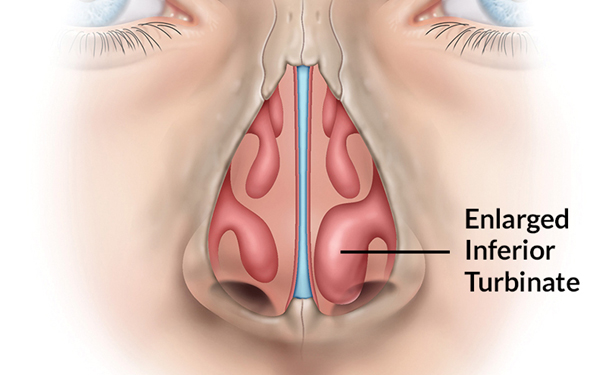Allergy Diagnosis and Treatment. An allergic reaction occurs when a person’s immune system becomes hypersensitive to certain substances, such as foods, pollen, drugs, or bee venom.
Allergy Diagnosis and Treatment
A substance that causes an allergic reaction is called an allergen. Many allergens are everyday substances that are harmless to most people. However, anything can be an allergen if the immune system has a certain negative reaction to it. Generally, the branch of Otorhinolaryngology and Head and Neck Surgery focuses on allergy treatment, and they detect and remove the allergen that causes your disease with various tests and findings or apply treatment methods with appropriate drugs. Different branches can also produce solutions for your allergy problems.

Allergy Diagnosis and Treatment
Allergy Diagnosis and Treatment
One of the roles of the immune system is to destroy harmful substances in the body. If a person is allergic to a substance, their immune system reacts as if that substance is harmful and tries to destroy it.
Millions of people in our country experience an allergic reaction every year. This reaction can lead to symptoms such as swelling. If the swelling affects the airways, it can be life-threatening. If you live in crowded districts such as Ataşehir Kadıköy in big cities such as Istanbul, the air you breathe and other stimuli can cause allergic reactions.
It is a scientific fact that many patients experience a decrease in allergy reactions, especially thanks to the masks used during the pandemic period. In addition, the supplements taken to strengthen immunity, where our eating habits have changed and better quality nutrition is formed, again reduced the allergy patient density during the pandemic period. But it should not be forgotten that the allergens we take may not always be harmful. There are even benefits to be taken for our immune system to a certain extent. In this article, we aim to provide you with information about the risk factors, symptoms and treatments associated with allergies. If you have or have such problems, you should definitely consult a specialist doctor.
What is an allergy?
Allergies develop when a person’s immune system overreacts to substances that are usually harmless.
When a person is first exposed to an allergen, they usually do not experience a reaction. It usually takes time for the immune system to develop a sensitivity to the substance.
Over time, the immune system learns to recognize and remember the allergen. In doing so, it starts producing antibodies to attack it when exposure occurs. This accumulation is called sensitivity.
Some allergies are seasonal. For example, hay fever symptoms can peak between April and May, when tree and grass pollen in the air is higher. A person may experience a more severe reaction as the pollen count increases. A perfume you have used before may cause allergies in the future. If you used to have a pet and had no problems living with it, years later you can become pet sensitive. A chemical that you have not even heard of coming out of the chimney of a factory around you, a mineral in the soil, in short, almost anything can make you sensitive. The reason why allergy treatment is difficult and expensive is that numerous tests are required to find and identify this allergen.

Allergy Diagnosis and Treatment
Allergy Symptoms
An allergic reaction causes inflammation and irritation. However, the specific symptoms will depend on the type of allergen. For example, allergic reactions can occur in the gut, skin, sinuses, respiratory tract, eyes, or nasal passages. These symptoms may also be a precursor or trigger for another disease. Therefore, if you have one or more of the following symptoms, you should see your specialist doctor.
Below are some triggers and the symptoms they can cause in people with allergies.
Dust and pollen allergies
• A blocked or stuffy nose
• Itchy eyes and nose
• runny nose
• Swollen and watery eyes
• Cough
Food allergies
• Vomiting
• a swollen tongue
• tingling in the mouth
• Swelling of the lips, face and throat
• Abdominal cramps
• Shortness of breath
• Rectal bleeding, especially in children
• Itching in the mouth
• Diarrhea
Insect sting allergies
• Wheezing
• Significant swelling at the insertion site
• A sudden drop in blood pressure
• Itchy skin
• Shortness of breath
• restlessness
• Hives or a red and very itchy rash that spreads over the body
• dizziness
• Cough
• Chest tightness
Allergies in drug therapy
• Wheezing
• Swelling of the tongue, lips and face
• Redness
• Itching
If symptoms become severe, anaphylaxis may develop.
Anaphylaxis symptoms
Anaphylaxis is the most severe form of allergic reaction. This is a medical emergency and can be life-threatening. Anaphylaxis can develop rapidly, with symptoms occurring within minutes or hours after exposure to the allergen.
Research shows that anaphylaxis most commonly affects the skin and respiratory system.
Some symptoms include:
• Hives, redness and itching
• Difficulty in breathing
• Wheezing
• Inflatable
• Low blood pressure
• Changes in heart rate
• Dizziness and fainting
• Loss of consciousness
Recognizing these symptoms can be crucial to getting timely treatment. If you have even one of the above symptoms, you should see a doctor immediately. In cities such as Istanbul, we recommend that you act by taking into account the traffic density in districts such as Kadıköy and Ataşehir.
Allergy Causes
When an allergic reaction occurs, the allergens bind to antibodies called immunoglobin E (IgE) that the body produces. Antibodies fight foreign and potentially harmful substances in the body.
When the allergen binds to IgE, certain types of cells, including mast cells, release chemicals that trigger allergic reaction symptoms.
Histamine is one of these chemicals. It causes the muscles in the airways and the walls of blood vessels to stretch. It also instructs the nasal lining to produce more mucus.
Risk factors
People who are under the age of 18 or have a personal or family history of asthma or allergies may be at higher risk of allergies.
Some researchers have suggested that those born by cesarean section may also be at higher risk of allergies because they are not exposed to the mother’s microbiome during delivery.
Common allergens
Potential allergens can appear almost anywhere.
In theory, a person can be allergic to any food. Certain ingredients, such as gluten, the protein found in wheat, can also trigger reactions. You may also be allergic to any substance not listed below.
High-population districts of Istanbul, the most populated city of our country such as Kadıköy, Ataşehir, Ümraniye, may also be producing allergens that you may be sensitive to, with industrial establishments established around them and naturally with their chimneys. Therefore, even if you have an allergic reaction, you may never find out what the cause is. But do not worry, there are various treatment methods.
Allergic Nasal Inflammation

Allergy Diagnosis and Treatment
Under Allergy Diagnosis and Treatment, Allergic rhinitis is one of the allergy diseases that concern the Otorhinolaryngology branch. It is also called respiratory allergy. In this type of reaction, allergens in the air we breathe cause a local reaction mostly in the nasal epithelium. In the inner tissue of the nose, allergens are perceived as foreign substances and a non-microbial inflammation begins there. The most common complaint is seizure sneezing and usually occurs between morning and noon. The most common complaints after sneezing are a runny nose like water and severe itching.
Cough, mild pain, and nasal congestion are also observed at varying rates. This reaction, which occurs in the nose, causes swelling in the lower nasal concha, which is naturally found in the nose, and therefore causes congestion. This type of allergy is most common in the childhood age group. Usually the allergen is pollen or house dust mites. It is one of the first conditions to be considered for the diagnosis and treatment of allergy.
Up to 20% of patients with nasal allergy may develop asthma. It is especially observed in industrial areas and seaside settlements. Oral allergy medications and nasal sprays form the basis of the treatment of allergic rhinitis. However, in the treatment of congestion experienced in adult individuals, minimal surgery such as Radiofrequency, lowering the lower turbinate (nasal meatus) is an effective healing method for congestion. Medication and surgical options can be combined.
Especially in allergic individuals, if there is bone or cartilage curvature in the nasal wall, nasal congestion caused by both anatomical narrowing and flesh growth caused by the allergy can reach severe levels. If there is a curvature of the septum (middle wall of the nose) together with the allergy, the operation is definitely recommended. Because allergic rhinitis is a disease that does not have a definitive solution but can be suppressed with drugs, but anatomical stenosis that can be corrected by surgery are completely treatable disorders. : It is possible to completely get rid of at least one of the causes of obstruction with the operation. In short, an Otorhinolaryngologist who is an expert in the field of allergy diagnosis and treatment can help you live a comfortable life for the rest of your life.
Allergy Centers in Istanbul -TURKEY
Istanbul actually brings an advantage for allergy sufferers. Because there are many institutions operating under the name of allergy centers. Among these institutions, there are also those who provide services only in the diagnosis and treatment of allergies. However, it is also possible to have the necessary tests for allergy diagnosis and treatment done in private laboratories and some hospitals. Your doctor Dr. Dr. Evren Ay Koç will direct you to the most accurate and appropriate centers for allergy diagnosis and treatment. Ataşehir is on its way to becoming a center that brings together healthcare professionals. You can find these centers by searching the internet. However, the important point to remember is that if you are an allergy sufferer, you should continue with a doctor who knows your history well and can be under constant control. You should consider your economic situation when choosing this doctor, which you can reach at any time of the day.
High examination fees, luxury hospitals and the astronomical prices you pay will not cure you. It will be your doctor’s care and expertise that heals you and makes you feel good. Therefore, Op. Dr. Evren Ay Koç, as your physician, offers you more than 15 years of experience at Ataşehir / Istanbul with affordable prices and special privileges for follow-up patients. If you want to get information about allergy diagnosis and treatment or to be examined, you can contact me.
Finally, I would like to share the page of the TURKISH NATIONAL ALLERGY and CLINICAL IMMUNOLOGY ASSOCIATION (AID), which is a national association in our country on allergies.